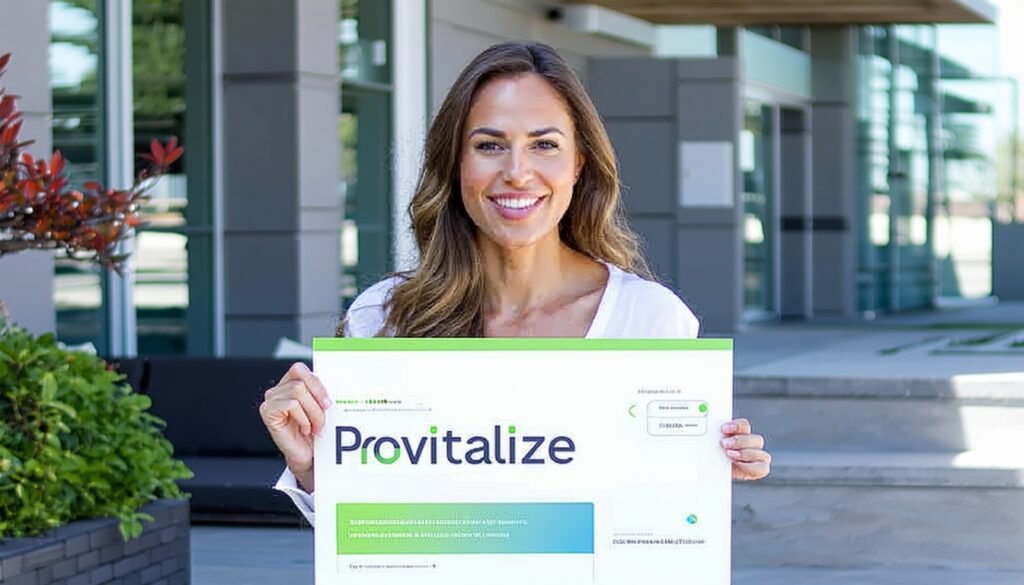Understanding Bowel Cancer
Understanding bowel cancer is key to spotting what might be coming. Let’s break it down and see what makes this condition tick and what could put you at risk at risk.
Basics of Bowel Cancer
Bowel cancer, or as some call it, colorectal cancer, tends to have its sights set on the older crowd but can surprise all ages. This sneaky disease often kicks off as polyps—tiny cell bumps that might morph into something nastier over time (Mayo Clinic).
Honestly, not every polyp has a nasty streak, but some decide to level up into colon cancer. Catching the signs early can make a world of difference. Look out for blood in stool, tummy aches that don’t quit, ballooning, or shedding pounds without trying (Medical News Today). Don’t be shy—talking to a doctor can change the game.
Risk Factors for Bowel Cancer
Plenty of things can crank up the risk of bowel cancer. Docs usually suggest people with average risk start colon checks around age 45 (Mayo Clinic). But if you’ve got one of those family trees that’s littered with colon cancer, consider getting checked sooner.
A healthy lifestyle can be a good defense. Simple daily tweaks can really throw a wrench in cancer plans (Mayo Clinic). Some might find that aspirin or its look-alikes could slash the risk of polyps or bowel cancer, though figuring out the right dose is a case-by-case deal.
Knowing the lowdown on bowel cancer and what risks to watch helps folks stay a step ahead. Regular check-ups, clean living, and talking to a doctor sooner rather than later are your best bets in outsmarting bowel cancer.
Symptoms and Indicators
Checking into bowel cancer stomach noises can be a game-changer, especially if you’re keen on catching things early and getting the care you need. We’re diving into all sorts of belly grumbles and what else to keep an eye out for to stay ahead of the curve.
Unusual Stomach Noises
When your insides start sounding like a marching band, it might not just be last night’s burrito acting up. Bowels can get rowdy due to a tumor causing your guts to move funny, which could lead to a medley of weird belly sounds—these are called borborygmi in the doctor’s office. They might pop up more often and louder in folks dealing with bowel cancer since the tumor likes to mess with your digestive groove.
If your stomach starts its own soundtrack and brings a bunch of buddies—like pains, weird bowel movements, or anything else sketchy—you’re going to want to hit up your doctor fast. They’ll help you figure out if something’s fishy or if it’s just a funky tummy day.
Other Common Symptoms
Besides having a noisy tummy, keep your eyes peeled for a few other signs:
- Dropping pounds without trying (no, the scale isn’t broken).
- The way your body handles a bathroom visit suddenly goes off-script.
- Seeing red in the toilet.
- It aches or feels ‘off’ in the belly area, which changes depending on where a tumor might be hanging out.
Catching these early and chatting with your healthcare provider gets you set up for the best outcome possible. Jumping on this stuff early can really crank up the success meter when it comes to treatment, so don’t wait until things feel too out of whack.
Importance of Early Detection
Spotting the hints that bowel cancer might be throwing your way—and doing something about it—can be a lifesaver. Catching it early means doctors can jump in with treatments that have the best shot at success, and that’s critical.
Regular check-ups, being symptom-savvy, and taking charge of your health can really help. Keeping an eye out and not ignoring that gut feeling (literally) can empower you to tackle potential health issues head-on. Remember, catching symptoms early paves the way for better health and peace of mind.
Screening and Diagnosis
Dealing with bowel cancer stomach noises means keeping one step ahead. Finding pesky problems early with the right screenings and tests can save your behind, literally. Let’s chat about the ins and outs of testing and the role your trusty healthcare experts play in keeping bowel cancer in check.
Recommended Screening Tests
If you’re between 45 and 75, listen up! Regular screenings for colorectal cancer are your ticket to staying ahead of the curve. According to the CDC, that’s your golden age range for screenings. Now, for folks aged 76-85, it’s time to have a heart-to-heart with your doctor about whether to continue.
Here’s the lineup of screening tests you might encounter:
| Screening Test | What It Does |
|---|---|
| Stool Tests | Sifts through your stool for odd cells or blood |
| Flexible Sigmoidoscopy | Takes a peek at your colon’s lower regions with a bendy tube |
| Colonoscopy | Goes all-out, exploring your whole colon and rectum |
| Computed Tomography Colonography | Taps into imaging wizardry to spot any colon quirks |
Even if you feel fine, pay attention. If something’s up from these tests, a colonoscopy could be the next step, and it’s important to go the distance to assess things fully.
Diagnostic Procedures
When the screening flags something suspicious, the real digging begins. The go-to for diagnosing colorectal cancer? The trusty colonoscopy. It’s a full-scale investigation using a long, flexible tube with a camera to unmask any hidden growths (Mayo Clinic).
Other handy tools, like CT scans or MRIs, might be useful, especially for mapping out the cancer and dialing in the best treatment strategy.
The Role of Healthcare Providers
Your healthcare team is your trusty sidekick in this saga. They provide the skinny on early detection’s importance, decode test results, and suggest the next moves tailored just for you.
They’ll help map out a screening strategy that keeps you two steps ahead and offer advice on lifestyle tweaks to avoid risks. Your doctor is your friend who’s there, hand-holding you through tests, treatments, and beyond.
By getting on board with the right tests, diving into diagnostic work, and letting your healthcare providers lead, you’re pulling an ace move against bowel cancer. Routine checks and prompt responses can mean happier, healthier days ahead. So remember, it’s all about staying sharp and staying proactive for the long haul.
Managing Bowel Cancer
Let’s talk about bowel cancer. It’s a beast, but with the right game plan, it can be managed. We’re talking treatment, lifestyle shake-ups, and a good support squad. Let’s dive into what helps keep this fight fair.
Treatment Options
The way you tackle bowel cancer isn’t one-size-fits-all. It varies by stage, where it is in the bowel, and how you’re doing overall. Here’s the lowdown on the main playbook: Surgery gets rid of the bad stuff, chemo hammers the pesky cancer cells, radiation fries what’s left, and some fancy drugs target cancer’s weak spots. There’s also immunotherapy, which is like giving your immune system a pep talk to fight cancer harder.
Sometimes, you’ll use a mix of these strategies to get the best shot at winning. It’s always best to chat with your doctors, as they’re the real MVPs here, building a plan that fits your situation like a glove.
Lifestyle Changes
Switching up daily habits is a game-changer in handling bowel cancer and keeping it at bay. Every day, ordinary changes can make a big difference—eating right, frequent movement, maintaining a healthy weight, tossing out nicotine, and watching how much booze you’re knocking back—these all stack the odds in your favor.
Load your plate with plenty of fruits, veggies, whole grains, and lean meats. Keep moving—whether it’s walking, jogging, or dancing in your living room. Every bit counts. These everyday moves not only boost your overall health but also keep the cancer comeback at a low risk.
Support and Care
A cancer diagnosis can feel like a sucker punch, but having emotional and practical support makes a world of difference. Family, friends, support groups, and mental pros can help you navigate through the heavy stuff. They’re there when you need a shoulder or someone just gets it.
Doctors and healthcare pros are your guides. They monitor treatments, answer all your burning questions, and keep all the care bits working together smoothly. Medicine’sMedicine is always marching forward, and staying up to speed on new treatments can be empowering, letting you take the reins of your care with confidence.
Pair some solid medical strategies, a healthy dose of lifestyle love, and a support team that has your back, and you can tackle bowel cancer head-on. Riding through treatment and beyond, you can not only cope but also thrive amidst the challenges.
Bowel Cancer vs. Stomach Noises
Would those strange tummy grumbles mean something more serious? Here, we’re diving into the possible connection between bowel cancer and those weird stomach sounds. We’ll check out symptoms that might be red flags and explain why it’s smart to see a doctor doctor if things feel off.
What’s Up with Bowel Cancer and Stomach Noises?
When your gut’s not happy, it lets you know, sometimes loud and clear. Bowel cancer can mess with how your insides normally do their thing, and bam — your stomach starts sounding like a marching band. That racket, called borborygmi (fancy, right?), gets louder and more raucous if there’s a tumor messing up the works. Keep those ears open for strange noises, especially if you’ve got other health gripes hanging around, too.
Spotting Symptoms That Matter
We all have an occasional noisy belly but throw in stuff like belly pain, and you might have a problem. Other big warning flags include losing weight without trying, a sudden change in how often you hit the bathroom, and seeing red in your stool (never a good sign). If your stomach’s going into overdrive with the growling and it won’t quit, it might be time to ponder the bigger picture and talk to a professional.
Time to Call In the Pros
If your stomach racket is part of a bigger chorus of symptoms, don’t wait around. Seeing a doctor pronto can really make a difference with bowel cancer — the sooner the docs catch it, the better the outcome you’re likely to have. They’ll check you out thoroughly, maybe run some tests, and figure out what’s going on.
A wonky stomach doesn’t mean you hit the panic button if it’s just talking to itself. Sometimes, cutting back on foods like fructose or sorbitol can hush things down. But remember, if other worrying signs are joining the noise, it’s wise to get a pro’s advice. They’re on your side to help manage whatever might come up. Your health is a top priority, so don’t let tummy talk stop you from taking action if you need to.
Addressing Stomach Noises
Belly sounds – we all get them. Recognizing what’s typical and what’s not is key to keeping your gut healthy. Understanding these pops and gurgles isn’t just about satisfying curiosity; it’s about optimizing your well-being.
Normal vs. Abnormal Stomach Noises
So, when does that tummy symphony take a wrong turn? Most of the time, rumbling after a meal is just the soundtrack of digestion. But noisy disturbances accompanied by sharp pain, unending bloating, odd bathroom habits, or blood in your stool? That demands a doctor’s opinion. If everything starts sounding different—like high-pitched or off-beat tunes—it’s time to dial up a healthcare pro who’ll get to the bottom of it. For those worried about bowel cancer, certain intestinal disruptions, thanks to tumors, might make your stomach produce unusual noises.
Dietary Adjustments for Stomach Noises
If your tummy’s acting like a marching band without the other scary symptoms, changing your food game might tune it down. Try cutting back on sugars like fructose and sorbitol. These little troublemakers can throw a ferment-fueled party in your gut, causing gas and noise. Keep your belly happy with fiber, water, and foods full of probiotics – they’re like the bouncers that keep the noise down. Work with your doctor to experiment with what you eat so you can pinpoint foods that might be making your stomach a noise factory.
Monitoring Symptoms and Seeking Help
Now and then, your belly chats to remind you it’s alive. But if it upgrades to an opera accompanied by dodgy symptoms, flag it with a doctor. A quick look under the hood can spot issues like bowel cancer or other digestive disorders, getting you on the right track. Stay in regular touch with your health team to keep those belly yellows in check. Remember, your gut is the secret life force powering you, and tuning in to its rumbles and grumbles supports your overall health.











